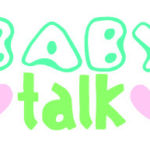I’m a blogging ambassador for the CHPA Educational Foundation’s KnowYourOTCs program and all opinions are mine, mine, mine!

It’s back to school season! Somebody pass me a tissue. ::sniff:: Kai starts pre-school tomorrow. ::gulp:: I’m not ready. Neither is she actually. She grips on to me whenever we discuss it. She is a fierce lil monster with me and her close family, but with new people, she is shy as can be. She needs this new adventure though, despite her nerves. She needs to make friends and experience the classroom dynamic even if she doesn’t
Outside of her being a lil scared, she has a hacking cough like she’s been smoking a pack a day since 1939. Rohan came home from his petri dish… I mean… elementary school, with a cold that wiped Kai out. And she’s my tough kid. A tank. She could avoid a cold like nobody’s business…and Ro would always catch em.
Now…it’s like preschool already has a grip on her with germies getting at my girl. When we first moved to Florida and Ro started pre-K, he came home sick almost daily. I am nervous it’s going to be the same with Kai. I have them both washing hands like crazy. (They love it actually, they waste SO much water and liquid soap washing their hands all the time.) They take their multivitamins, and eat their veggies, take meds when necessary.
Here are 4 Tips for Parents of Preschool-Aged Kids from KnowYourOTCs.org:
When it comes to preschoolers, prevention is key. And teaching them to be a part of that process from a young age is important.
· Teach them about the importance of hand washing for germ prevention. For kids, regularly washing their hands can be a fun and entertaining activity – and, it provides a chance for them to take an active role in their own self-care. Children should wash their hands for 20 seconds, or about how long it takes to sing the happy birthday song.
· Teach them to cough into their elbow. According to Dr. Wendy Sue Swanson of Seattle Mama Doc, germs are most commonly spread by the respiratory droplets emitted from sneezing and coughing. When you sneeze or cough, or even wipe your nose with your hand, the droplets are transmitted to things like door knobs, remotes, kitchen counters, and other surfaces that people around you are likely to also touch. It is age appropriate to explain this to your kids and teach them that coughing into their elbow can help germs from spreading to others.

· Always use the proper word for vitamins when speaking to them, never call it candy. Medicine is medicine — Dr. Swanson said, “We can discuss its benefit but really can’t confuse or inflate it to that of candy.” Dr. Swanson also reminds us that, “Our children inherently want to mimic our behaviors (at least while they are young!) so we have to stay away from advertising medicines or vitamins as candy.”
· Teach them to only take medicine from a parent or trusted caregiver. Dr. Swanson notes that although this is a safeguard, especially for older children, “We have to remember that young children will always be led by their curiosity.” And make sure all your medicines are stored safely up and away and out of sight! Find more information about the safe storage of medicines here.
That last tip threw me for a loop. I didn’t even think to explicitly teach that lesson, until now. Check out KnowYourOTCs.org for tips for elementary aged kids and middle school children





Leave a Reply